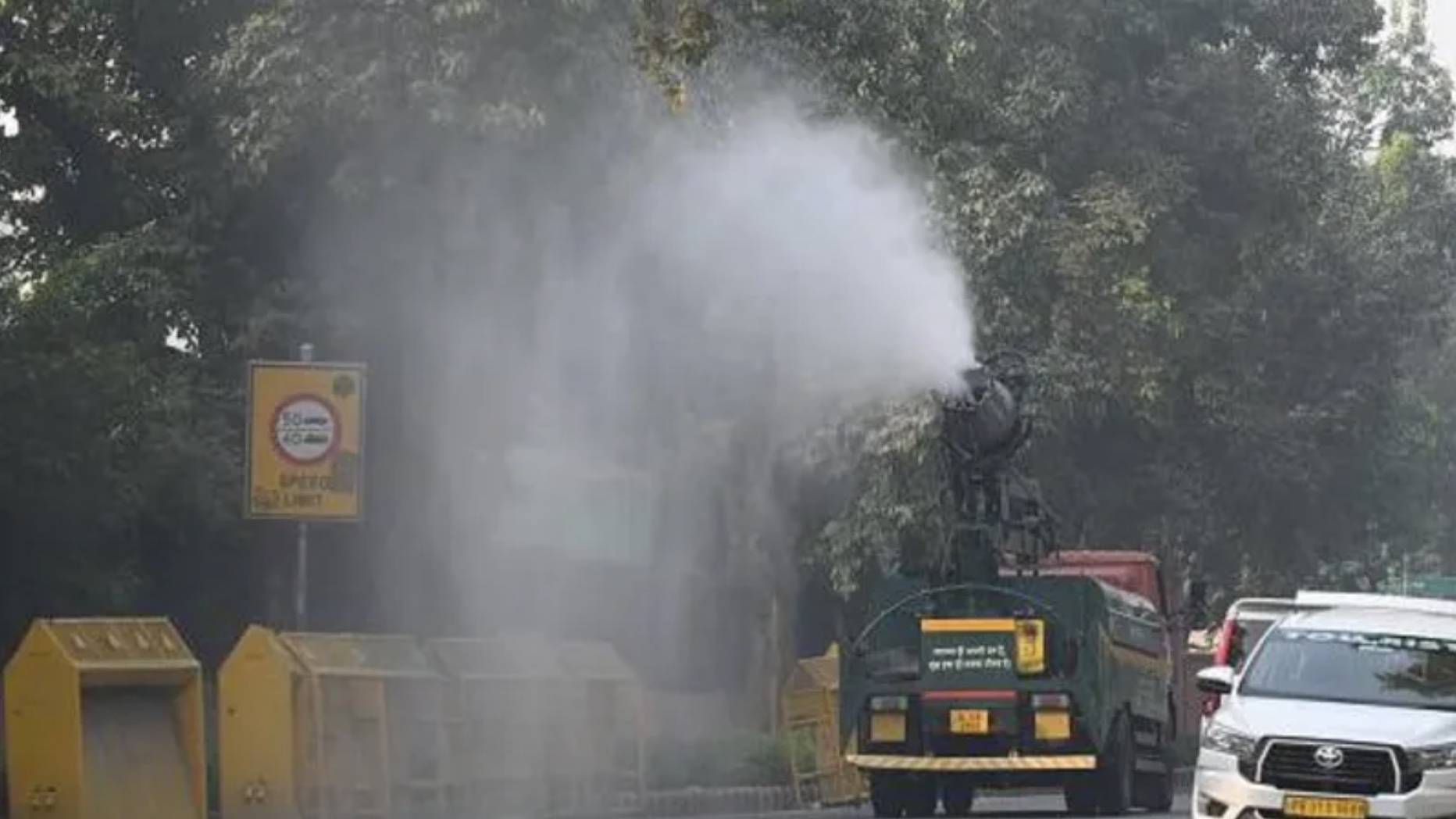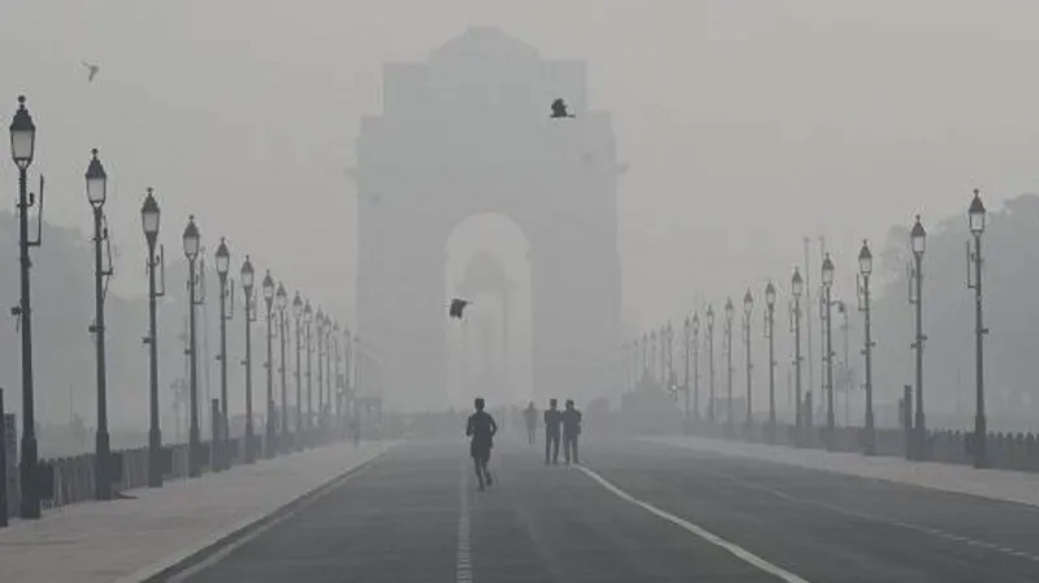คุณภาพอากาศในกรุงนิวเดลี เมืองหลวงของอินเดียได้ทรุดลงสู่ระดับที่รุนแรงและเลวร้ายที่สุดในช่วงไม่กี่วันที่ผ่านมา ข้อมูลแสดงให้เห็นว่าระดับมลพิษในหลายพื้นที่ของเมืองเกิน 25-30 เท่าของค่าที่องค์การอนามัยโลก (WHO) กำหนดให้เป็นขอบเขตที่ปลอดภัยเมื่อสัปดาห์ที่แล้ว ผู้เชี่ยวชาญเตือนว่าสถานการณ์จะเลวร้ายลงในวันข้างหน้าเนื่องจากสภาพอากาศ การใช้ประทัดในเทศกาลดิวาลีในวันพฤหัสบดีนี้ และการเผาไหม้เศษซากพืชในรัฐใกล้เคียง

กรุงนิวเดลีและหลายเมืองใหญ่ทางตอนเหนือของอินเดียจะมีรายงานระดับมลพิษทางอากาศที่รุนแรงระหว่างเดือนตุลาคมถึงมกราคมของทุกปี ส่งผลกระทบต่อการดำเนินธุรกิจ การปิดโรงเรียนและสำนักงาน อย่างเช่นในวันจันทร์ที่ผ่านมา ระดับของ PM 2.5 ซึ่งสามารถเข้าสู่ปอดลึกและก่อให้เกิดโรคหลายชนิด สูงถึง 350 ไมโครกรัมต่อลูกบาศก์เมตรในบางพื้นที่ ข้อมูลจากเว็บไซต์ Safar ซึ่งรัฐบาลดูแลระบุว่าคุณภาพอากาศจะถือว่ามีความแย่มากเมื่อระดับ PM 2.5 สูงถึง 300 ถึง 400 และจะเรียกว่าระดับรุนแรงเมื่อระดับเกิน 400 ถึง 500
กรุงนิวเดลีจะถูกปกคลุมด้วยหมอกควันหนาทึบทุกฤดูหนาวเนื่องจากควันฝุ่น ความเร็วลมต่ำ การปล่อยก๊าซจากรถยนต์ และการเผาเศษซากพืช ในเดือนพฤศจิกายนและธันวาคม ชาวนาจากรัฐใกล้เคียง เช่น ปัญจาบและฮาริยานา จะเผาเศษซากพืชเพื่อเคลียร์ที่ดิน แต่กลุ่มเกษตรกรบอกว่าพวกเขาต้องการความช่วยเหลือด้านการเงินและเทคนิคในการหาวิธีการอื่นในการกำจัดเศษซากพืช แต่โครงการของรัฐบาลยังไม่ได้ผลอย่างมีนัยสำคัญ
ควันจากการใช้ประทัดในเทศกาลดิวาลีก็เพิ่มปัญหาขึ้นด้วย โดยเช่นทุกปี รัฐบาลกรุงนิวเดลีได้ประกาศห้ามการผลิต การเก็บรักษา และการขายประทัดอย่างเด็ดขาดก่อนเทศกาลที่ใกล้เข้ามา แต่การห้ามเหล่านี้ยังไม่ได้ผลอย่างสมบูรณ์ในอดีต เนื่องจากผู้คนยังสามารถหาซื้อประทัดจากรัฐอื่นๆ ได้
รัฐบาลกรุงนิวเดลียังได้ดำเนินการตามแผนปฏิบัติการรับมือมลพิษที่เรียกว่า GRAP ซึ่งห้ามกิจกรรมทั้งหมดที่เกี่ยวข้องกับการใช้ถ่านหินและฟืน รวมถึงการใช้เครื่องกำเนิดไฟฟ้าดีเซลสำหรับบริการที่ไม่ใช่เหตุฉุกเฉิน เจ้าหน้าที่ในกรุงนิวเดลีได้เตือนให้ประชาชนอยู่ในบ้านมากที่สุดเท่าที่จะทำได้ และได้จำกัดกิจกรรมการก่อสร้างในเมือง พวกเขายังได้เรียกร้องให้ประชาชนใช้บริการขนส่งสาธารณะเพื่อลดการปล่อยก๊าซจากรถยนต์
Worry over toxic Delhi air as pollution worsens

Air quality in India’s capital Delhi has deteriorated to severe and extremely poor levels in the past few days, data shows.
Pollution levels crossed 25-30 times the World Health Organization (WHO)’s recommended safe limit at several locations in the city last week.
Experts have warned that the situation will worsen in the coming days due to weather conditions, use of firecrackers during the festival of Diwali on Thursday and burning of crop remains in neighbouring states.
Delhi and several northern Indian cities report extreme levels of air pollution between October and January every year, causing disruption to businesses, shutting down of schools and offices.

The levels of tiny particulate matter (known as PM 2.5), which can enter deep into the lungs and cause a host of diseases, reached as high as 350 micrograms per cubic metre in some areas on Monday, data from government-run Safar website shows.
According to the website, air quality is categorised as very poor when PM 2.5 levels reach 300 to 400, and it’s termed severe when the limit reaches 400-500.
Delhi gets enveloped in a thick blanket of smog every winter due to smoke, dust, low wind speed, vehicular emissions and crop stubble burning.
In November and December, farmers in the neighbouring states of Punjab and Haryana burn crop stubble to clear their fields.
Farming groups say they need financial and technical help to find alternative ways of clearing crop remains but government schemes have so far not been effective.
The smoke from firecrackers set off during Diwali adds to the problem.
Like every year, the Delhi government has announced a complete ban on the manufacturing, storage and sale of fireworks ahead of the festival, which falls later this week.
But such bans have not been completely effective in the past as people source fireworks from other states.
The Delhi government has also enacted its Graded Response Action Plan, known as GRAP, to tackle pollution.
It bans all activities which involve the use of coal and firewood, as well as diesel generator use for non-emergency services.
Authorities in Delhi have warned residents to stay indoors as much as possible and have curbed construction activity in the city.
They have also urged people to use public transport to cut vehicular emissions.
By Nikita Yadav, BBC News

















